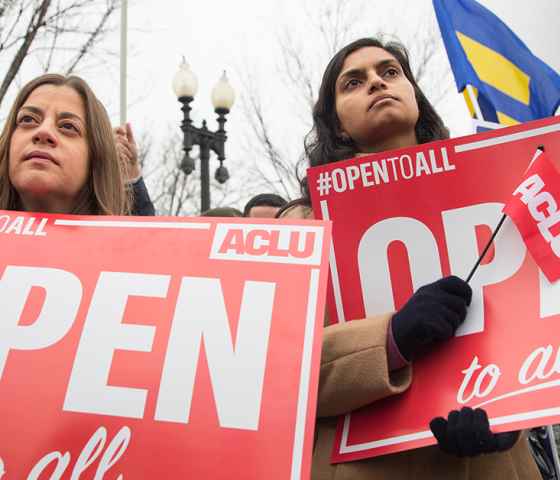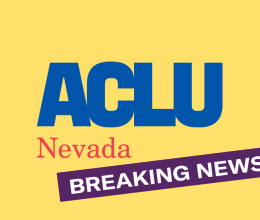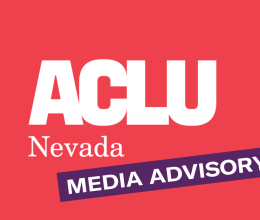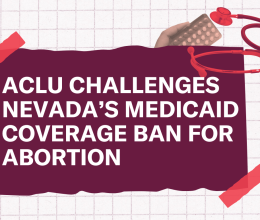By Carla Ramazan, Founder, Wild West Access Fund
In May, Texas Gov. Greg Abbott signed a near total ban on abortion into law. Senate Bill 8 bans abortion after 6 weeks, even in cases where pregnancy is the result of rape or incest. At 6 weeks, most people do not even realize they are pregnant. SB8 would thus make at least 85 percent of abortions performed in Texas illegal.
While the law is insidious, this blatant attack on reproductive rights follows a national movement against abortion over the past decade. States like Arkansas, Oklahoma, and South Carolina have passed legislation in recent years that are direct and indirect challenges to Roe v. Wade, the landmark 1973 US Supreme Court case that enshrined a federally protected right to an abortion.
After the confirmation of Amy Coney Barrett to the Supreme Court in 2020, many conservative state lawmakers have been keen to test the limits of what the new 6 - 3 anti-abortion majority will restrict, with the coordinated goal of eliminating abortion access nationwide. Consequently, 2021 has become the most restrictive year for abortion access since 1973, with 19 states enacting 97 restrictions on abortion since January alone, according to the Guttmacher Institute.
This political environment has produced the most restrictive abortion legislation in the country: Texas’ SB8. SB8 takes the unprecedented step of deputizing private citizens to sue anyone aiding another person in obtaining an abortion after six weeks. Texas’ state legislature has thus empowered private citizens to bring civil litigation, with a veritable bounty of least $10,000 in damages, against providers or practical support organizations who assist a patient in accessing an abortion. Anyone from the clinical staff to an Uber driver is a potential defendant. This enforcement mechanism purports to insulate the law from federal court intervention, since the state itself does not administer it. This legislation will purposely create burdensome legal fees and lawsuits for clinics, making it impossible for many to remain open and offer abortion access even before the six-week deadline. To reverse this policy, advocates have taken legal action to challenge the constitutionality of SB8.
As reproductive justice advocates, we know the stakes: the right to an abortion means the right to life-saving care.
A coalition of abortion providers, funds, clinic staff, practical support networks, and clergy helped file Whole Women’s Health v. Jackson in the U.S. District Court for the Western District of Texas. The plaintiffs were seeking immediate relief to halt the implementation of SB8 on September 1st. The case was appealed to the Supreme Court, which failed to act before the implementation date and remained silent for nearly 24 hours after the law went into effect. After the Court spent less than three days dealing with the case, the justices ruled 5 to 4 to leave the law in place, effectively handing abortion opponents a huge victory, though the Supreme Court left open the possibility of a later constitutional challenge.
Other conservative state legislatures are likely to follow suit in curbing abortion access, as SB8 serves as a playbook for how states can attempt to shirk federal intervention. A key impact of SB8 will be the increase in travel required for any Texan seeking abortion. Patients will have to deal with a small window of opportunity between confirming that they are pregnant and figuring out the logistical and financial details of accessing an abortion. Thus, there is a strong possibility that Nevada, which has much less restrictive abortion laws, absorbs some of these patients. It is therefore imperative for reproductive justice advocates to support practical support groups in Nevada and Texas that are helping people access abortion. Additionally, advocates must raise capital and popularize abortion care funds that are working toward making abortion, including the financial and logistical costs, feasible for low-income groups that will be disproportionately affected by this legislation.
For those wanting to join the fight in Nevada, Wild West Access Fund is a new abortion fund in the state. The fund is entirely run by unpaid volunteers who help facilitate funding and practical support resources for abortion seekers. For anyone looking to channel their rage, now is a great time to donate $10 to a local abortion fund.
As reproductive justice advocates, we know the stakes: the right to an abortion means the right to life-saving care. The right to an abortion means the right to bodily autonomy. The right to an abortion means the right to choose. We must do everything we can to ensure its survival.






